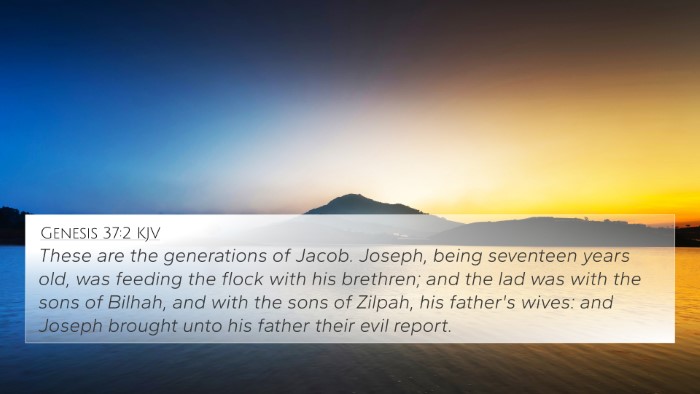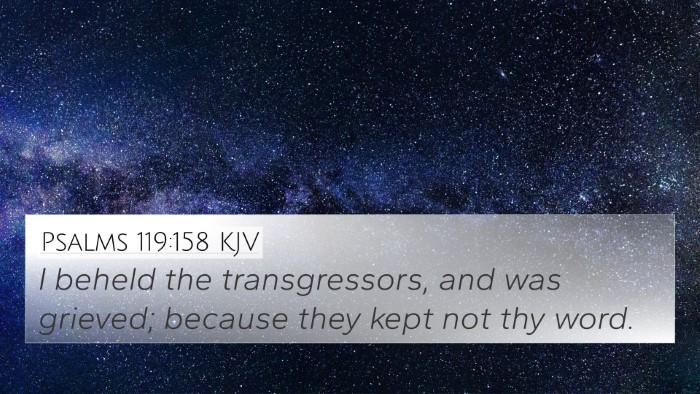Meaning of Matthew 18:31
Matthew 18:31 states: "So when his fellow servants saw what was done, they were very sorry, and came and told unto their lord all that was done." This verse describes the reaction of the fellow servants after witnessing the harsh treatment of a fellow servant who was forgiven much but refused to forgive a small debt.
Summary of Commentary Insights
From Matthew Henry: This verse illustrates the concept of accountability among believers. The fellow servants, representing the church community, were disturbed by the injustice they witnessed. Their sorrow symbolizes the collective moral responsibility that members of the body of Christ hold towards one another. When one member fails to forgive, it affects the community's integrity.
From Albert Barnes: Barnes emphasizes the seriousness of sin and the consequences of unforgiveness. He points out that the fellow servants' sorrow reflects a divine displeasure that arises from a lack of mercy. This part of the parable serves as a warning that believers must extend forgiveness as they have received it, prompting self-examination and repentance.
From Adam Clarke: Clarke highlights the importance of communal relationships in the Kingdom of Heaven. He notes that the fellow servants' response is crucial as it leads to accountability before the master. Their action in reporting the unforgiving servant is a call to uphold a standard of forgiveness that aligns with God’s character and expectations.
Thematic Connections and Cross-References
This passage connects with several key biblical themes that emphasize forgiveness and accountability:
- Matthew 6:14-15: Forgiveness as a conditional aspect of receiving forgiveness from God.
- Luke 6:37: The call to not judge or condemn, reflecting the ethos of mercy.
- Colossians 3:13: The importance of bearing with one another and forgiving grievances.
- Ephesians 4:32: Being kind and compassionate, forgiving as God forgives us.
- James 2:13: Mercy triumphing over judgment, further affirming the divine principle of forgiveness.
- Mark 11:25: The need to forgive others so that God may forgive us.
- 1 John 1:9: Assurance of forgiveness when we confess our sins, indicating mutual responsibility.
Application and Reflection
Matthew 18:31 invites believers to reflect deeply on their own capacity for forgiveness within their community. It serves as a reminder that the grace we receive should be mirrored in our treatment of others. Just as the fellow servants were distressed by the unforgiving behavior, we should consider how our actions impact our relationship with God and the body of Christ.
In understanding this verse, believers are called to examine:
- How do we actively practice forgiveness in our daily lives?
- What areas of our hearts remain hardened against others?
- How can we promote an atmosphere of grace within our communities?
Inter-Biblical Dialogue
This verse serves not only as an individual teaching but a part of greater conversations found throughout Scripture regarding mercy, forgiveness, and community relationships. The interconnections suggest a larger narrative about the character of God and how we, as His followers, ought to reflect that character through our relationships.
Exploring Cross-Referencing Tools
Utilizing tools for Bible cross-referencing can enable a deeper understanding of how verses relate to each other. Here are some potential study aids:
- Bible concordances to find themes and word occurrences.
- Bible cross-reference guides to track relationships between scriptures.
- Cross-reference Bible study methods for thematic exploration.
- Comprehensive Bible cross-reference materials for deeper study.
Conclusion
In summary, Matthew 18:31 calls for an examination of our own hearts towards forgiveness within the community of believers. The reactions of those around us, like the fellow servants, are significant and are a reflection of our understanding of God's mercy. Through cross-referencing connected scriptures and utilizing study tools, we can deepen our grasp of these vital themes.














